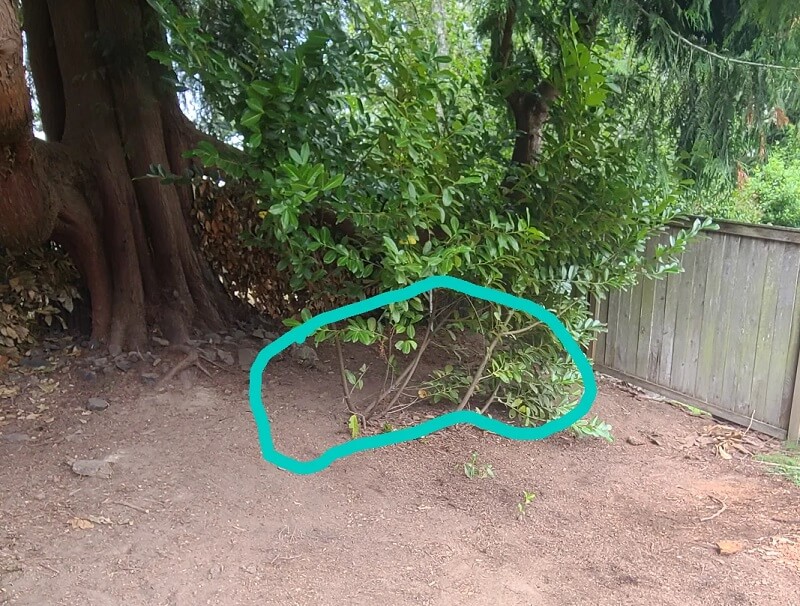A new homeowner sought out a Reddit community for advice after discovering a concerning feature of their recently acquired garden.
The folks of r/landscaping were asked what to do about landscaping fabric, which was found when trying to clear an area to grow grass.

"While I was clearing away the mulch, leaf debris, & cones, I noticed the area circled in the pic has landscape plastic under the topsoil," they noted. "I had planned to grow grass here (it's very shady & dry so I bought deep shade seed for this area and planned to keep it watered) but now I'm not sure what to do."
They also expressed concerns that maybe the plastic was an attempt to prevent erosion, with a cedar tree located at the top of an incline.
It wasn't long before the Reddit community members began to issue warnings about a material that often does far more harm than good.
"Always remove plastic; it has no place in a landscape and kills the soil," one user warned. "I would argue that, except for very specific and limited circumstances landscape fabric also should be removed. This isn't one of those circumstances."
Even on the subject of erosion, the response was that the plastic would probably make the issue worse rather than improve the situation.
"Thank you so much!" the original poster replied. "I'm going to dig it out as much as I can."
While landscaping fabric is often advertised as a way to help prevent the growth of weeds, it isn't as effective as you might be led to believe. While it will certainly slow the rate at which weeds pop up, it isn't a silver bullet. What's more, it's likely that troublesome roots will take hold of the fabric, which can make removal even more difficult.
It's typically a waste of money — and cheap, equally effective methods such as laying down biodegradable cardboard boxes and adding soil on top might be a smarter use of your time and resources.
Plastic landscaping fabric, in particular, should be actively avoided. As the helpful r/landscaping member observed, this material will leach the toxic petrochemicals used in the plastic production process into the soil, which will likely hinder the growth of desired plants.
It will also break apart over time, which can make any future removal effort a nightmare and leave plastic fragments strewn across your yard. Those bits of plastic could be ingested by any animal visitors to your property and lead to sickness or even death, further damaging the local ecosystem.
Thankfully, this Redditor got some sound advice and can begin the process of removing the offending item. Perhaps someone should have also directed them toward planting a natural lawn instead of traditional grass, with alternatives such as buffalo grass and clover providing similar benefits while also needing significantly less water and mowing.
Join our free newsletter for easy tips to save more and waste less, and don't miss this cool list of easy ways to help yourself while helping the planet.









